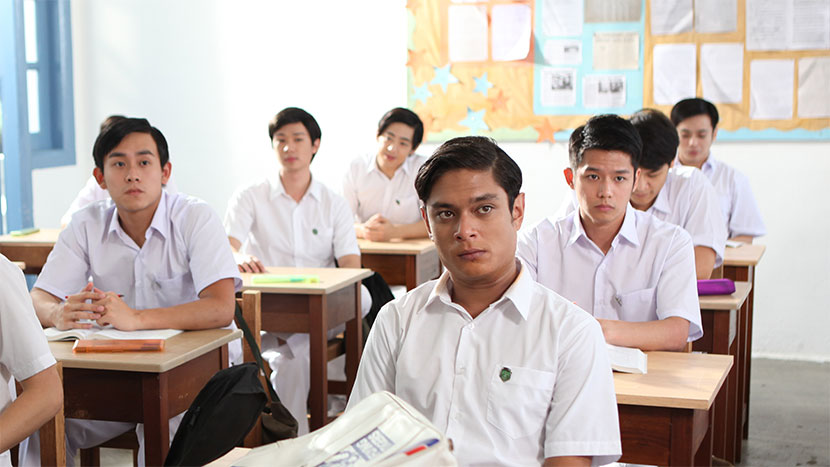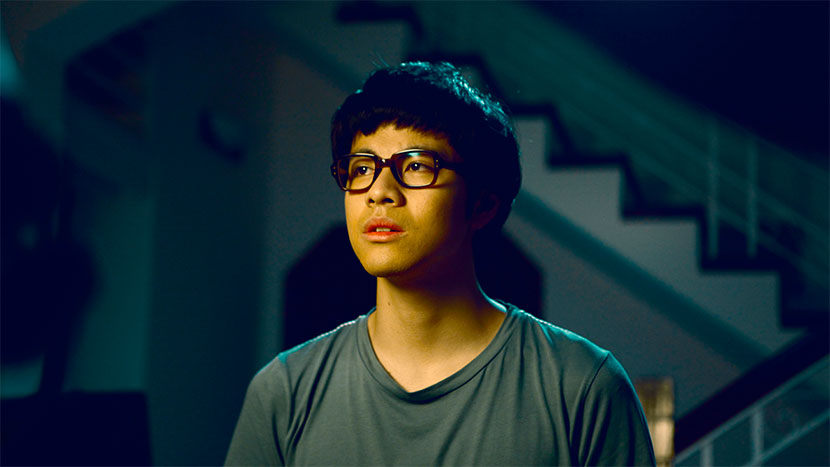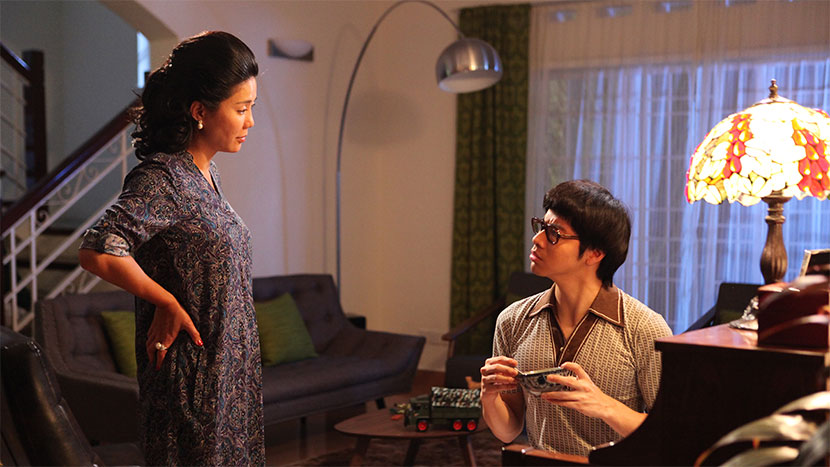By Jean Yeo
At 60, Singapore’s prized composer Dick Lee has become no less than a household name. Getting there, however, hasn’t been a walk in the park, as he’s shown in Wonder Boy, a film based on his life and times.
Co-directed with Daniel Yam, Lee peels back the layers of his life in his directorial film debut – showing the struggles he faced in throughout his teenage years with friendship, family and love; and finding himself through music. Though not a full biopic, Wonder Boy is heavily inspired by events in Lee’s life.
Wonder Boy centers on Richard, who is portrayed by Benjamin Kheng, 26, actor and member of local band The Sam Willows.

“It’s a piece that talks about the local music scene and the search for an artist’s identity, so it kind of made sense,” says Kheng, explaining his decision to be part of the project.
Set in the 1970s, the movie heavily showcases the rough musical landscape at the time. “It was not conducive to musicians, like anyone who wanted to write original music,” says Lee. The government sought to limit “undesirable Western influences”, namely pervasive drug culture. “There was an association between drugs and rock music,” he says. “So for someone like me who was trying to make music … I felt like a criminal.”

Growing up with the music of local cover bands from the early ’60s, Lee himself was snubbed for wanting to write original music of his own. He says, “People were just saying like, ‘Why bother?’ No one’s interested, no one really cared.”
Richard later befriends Mark (Zachary Ibrahim), with whom he forms a band called The Wonder Boys, giving the film its title.

As Lee explains, a ‘wonder boy’ is truly how Richard soon begins to see himself, going so far as to consider himself “God’s gift to music”. This conceit is dealt with later in the film as Richard is brought down by betrayals and insecurities.
One such betrayal stems from Richard’s friendship with Mark, as Mark begins to bully Richard. “He ends up making Richard feel more alone than he’s been, ever,” Ibrahim says. This comes as a wake-up call to Richard that he has to be more responsible for himself, as his friends may not always be there for him.

Contrary to any belief that the film was Lee’s brainchild, Lee reveals that it had been mm2 Entertainment, the company producing the film, that had first suggested to him to tell the story of his youth. When Lee considered all the young talents he has worked with for the past 10 years, he felt that he had a lot he could share with them that might inspire them.
“Persevering is one of the things I had learnt that has helped me in my whole life… The movie ends with my first album being released, but the struggle didn’t end then. All through my career, it’s been difficult, especially coming from [Singapore]. The environment here is not great for local musicians, and I think a lot of them are still feeling that,” Lee says.
For Kheng, who just came out of clinical depression before filming, an episode he describes as “not knowing who [he] was any more on an artistic and personal level”, being part of the movie allowed him the joy of “telling someone else’s story for a change”.

“On the personal end, I had to learn to disassociate myself from my name and think of [what I do] purely as work. No one is better at that than Dick himself,” he shares.
The biggest lesson Kheng has learnt from the veteran is to “quit whining and reminiscing, and to put [his] head down and continue the work”.
The actors all resound that the movie will end on an emotional, bittersweet note. The scene without dialogue speaks for itself, a recollection of Richard’s life with the different people whom he’s loved.
Constance Song, who plays Richard’s mother, adds: “It’s very powerful; we didn’t need the lines.”
Every scene with a family member or loved one is immensely special to Kheng, as it felt like “[they] were carving out more time or an alternate universe for [Lee] to make peace with them”.

Wonder Boy, just like all of Lee’s musical works, echoes sentimentality and rumination, with an empowering message to believe in oneself and plow through all odds. As the man himself says, “People ask me ‘How did you manage to have such a long career?’ and all that, and I think… the first lesson [of persevering through distress] I had learnt back then is the reason why I’m still here today.”
Wonder Boy is screening in cinemas now. Check out the teaser trailer here:
